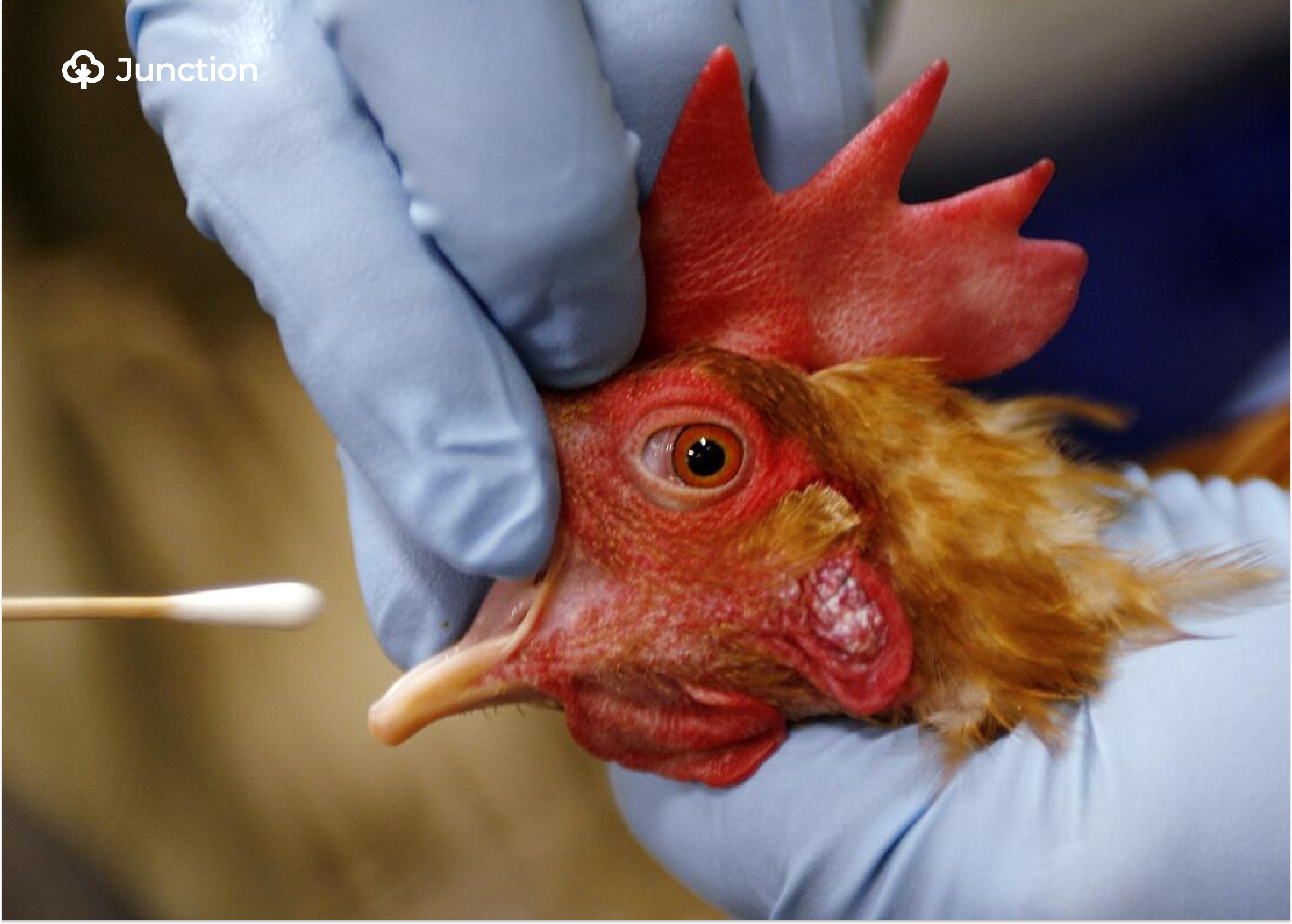News in Brief:
– A bird flu outbreak in Nigeria has led to widespread culling of poultry, disrupting supply chains and causing concerns about rising prices for eggs and meat.
– The government is implementing measures to control the outbreak and support farmers, while experts warn of potential long-term impacts on the poultry industry.
A recent resurgence of avian influenza, commonly known as bird flu, across several Nigerian states, has ignited fears of a sharp increase in poultry and egg prices. The outbreak, resulting in widespread culling of poultry, has disrupted supply chains, leaving consumers bracing for potential price hikes.
Spread of the virus and impact on poultry farms
Essentially, confirmed cases of the highly contagious H5N1 virus have been reported in key poultry-producing states, including Kano, Rivers, and Plateau.
The rapid spread has forced farmers to cull large numbers of birds in an attempt to contain the outbreak. This drastic measure, while necessary, has significantly impacted poultry and egg production capacity.
Also, concerns have arisen over fears that some unscrupulous farmers or businessmen may be selling off sick or dead birds for consumption in eateries and restaurants in major urban areas across the country.
This has prompted various health authorities in different states to issue bird flu alerts in a bid to curtail the spread of the disease. Poultry farmers are already reeling from the impact.
“The losses are devastating,” lamented Mr Ango Ibrahim, a poultry farmer in Kano. “We’ve had to cull a large portion of our flock. Rebuilding will take time, and in the meantime, we have far fewer eggs and chickens to sell.”
Other farmers have echoed similar sentiments, highlighting the severe economic blow dealt by the outbreak.
Market dynamics and rising prices
The reduced supply of eggs and poultry is already manifesting in local markets. Traders in major cities like Abuja and Lagos are reporting a noticeable increase in wholesale prices. This increase is quickly trickling down to consumers.
“A crate of eggs that used to cost ₦5,500 is now selling for ₦8,000, sometimes even more, in some areas,” explained Madam Chika, a foodstuff vendor in a Lagos market. ” Customers are already complaining. If the price keeps going up, it will be difficult for us to stay in business.”
Subsequently, consumers, for whom eggs and chicken are vital and affordable protein sources, are worried about the potential impact on their household budgets.
Another respondent, Mr Okechukwu Agu, expressed fears over the heightened risk of consuming infected birds, especially in Lagos State.
“You know the real problem here is that some of these aboki (Hausa itinerant hawkers) will still sell the dead birds to unsuspecting consumers. There is no way to ensure that only quality and healthy birds are used for most of the chicken suya one buys from them,” he claimed.
Therefore, Agu strongly advised restraint in eating poultry products from unverified sources to reduce the risk of bird-to-human transmission of the disease.
State Governments response and mitigation efforts
Meantime, the Nigerian government has acknowledged the severity of the situation and has pledged to take decisive action to control the spread of the virus.
Subsequently, the Ministries of Agriculture in various states have announced measures to support affected farmers and prevent further outbreaks.
1. Rivers State
The Rivers State Ministry of Agriculture confirmed the outbreak of highly pathogenic avian influenza (bird flu) at a 3,000-capacity poultry farm in Iriebe, Obio/Akpor Local Government Area, on January 17, 2025. The state’s Agriculture Commissioner, Victor Kii, in a statement, noted that the affected farm was under strict quarantine, all birds depopulated, and the premises decontaminated.
2. Plateau State
In Farin Gada, Jos North Local Government Area, Plateau State, an avian influenza outbreak impacted over 3,000 birds at a local farm. Reportedly, the situation was worsened by the fact that the infected birds were sold before veterinary officials could take necessary control measures.
3. Kano State
Additionally, Kano State Health Commissioner, Dr. Abubakar Yusuf, confirmed the deaths of 35 chickens due to bird flu in the Gwale Local Government Area. He assured residents that the situation is under control, with the Ministries of Health and Agriculture working to manage the outbreak.
Federal Government’s response
The federal government expressed concerns about the heightened risk of bird flu spread. A circular signed by Dr Taiwo Olasoju, on behalf of the Chief Veterinary Officer of Nigeria, urged state veterinary offices and relevant agencies to implement surveillance systems to prevent further transmission.
Essentially, the circular stressed the importance of strict biosecurity measures, public awareness campaigns, and close monitoring of poultry flocks.
“We are working closely with state governments to contain the outbreak and provide necessary assistance to farmers,” stated a representative from the Federal Ministry of Agriculture. “We are also stressing the importance of biosecurity measures on farms to prevent future occurrences.”
These measures include stricter surveillance, rapid response teams, and public awareness campaigns.
Long-term implications and future outlook
While the immediate concern is the potential rise in poultry and egg prices, experts warn that the bird flu outbreak could have long-lasting effects on Nigeria’s poultry industry.
Some are advocating for increased investment in research and surveillance to better understand the virus and develop more effective prevention strategies.
Meantime, since 2006, Nigeria has repeatedly faced outbreaks of bird flu, a severe and contagious viral disease in birds. This illness can severely damage birds’ internal systems and often leads to high death rates within flocks.
The disease has devastated poultry populations, causing significant financial losses for those in the industry. It also poses a risk to humans, as it can spread from birds to people.
Nigeria’s geographic location along major bird migration routes, makes it particularly vulnerable. A major outbreak between 2021 and 2022 swept across the country, impacting a large number of regions.



